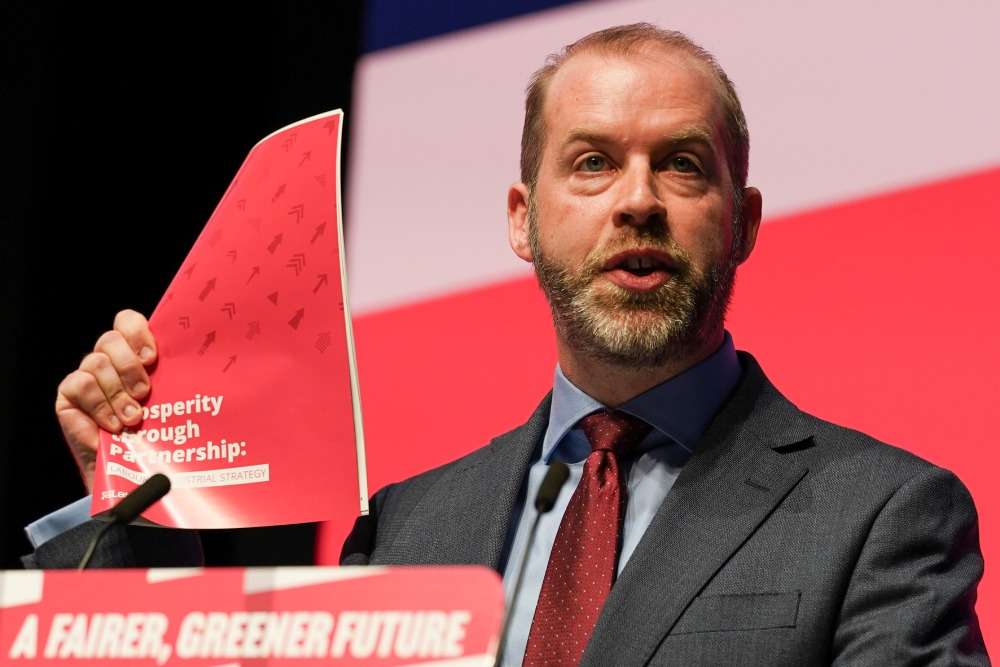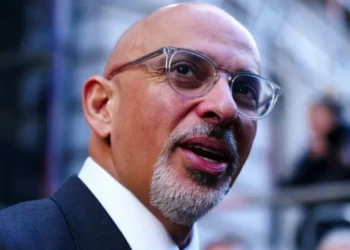Chancellor Rachel Reeves is under pressure to increase taxes and slash public spending after the Organisation for Economic Co-operation and Development (OECD) downgraded the UK’s growth forecast and warned of insufficient fiscal buffers in the face of inflation and an escalating trade war with the United States.
The OECD advised the Chancellor to “step up” efforts to shore up public finances, warning that Britain’s current financial safeguards are “very thin” and risk breaching fiscal rules if another economic shock occurs.
The Paris-based economic body has urged Reeves to act swiftly, starting with next week’s Spending Review, which will define government expenditure for the years ahead. According to the OECD, “Efforts to rebuild buffers should be stepped up.”
The pressure intensified just hours after Defence Secretary John Healey declined to rule out potential tax hikes to finance the government’s pledge to boost the UK’s military readiness. He was grilled about Labour’s ambition to raise defence spending to 3 per cent of GDP, a goal outlined in a recent strategic defence review.
“We’ll set out how we’ll pay for future increases in the future,” Healey said, offering no firm commitment but hinting that financial measures could be introduced to meet military goals.
The OECD also revised down its UK growth forecast for the year, projecting GDP growth at 1.3 per cent instead of the earlier estimate of 1.4 per cent. The 2026 forecast was similarly lowered to 1 per cent, from a previous 1.2 per cent.
In the report, the OECD stressed the importance of reinforcing fiscal discipline through a mix of spending cuts and targeted tax increases.
“Strengthening the public finances remains a priority, by delivering on the government’s ambitious fiscal plans, including through the upcoming spending review.”
OECD report
The organisation recommends a “balanced approach” that includes “targeted spending cuts, including closing tax loopholes; revenue-raising measures such as re-evaluating council tax bands based on updated property values; and the removal of distortions in the tax system.”
Trade War Threatens Already Fragile Economy
Another pressing issue facing the Labour government is the deepening trade rift with the United States. Business Secretary Jonathan Reynolds is set to meet his American counterpart, Jamieson Greer, following a summit of OECD trade ministers in Paris.
Reynolds is expected to push for an urgent timeline to implement a much-celebrated UK-US trade deal announced earlier this month. Although the agreement promised the removal of tariffs on steel and aluminium, implementation delays have left critical British industries vulnerable to new U.S. tariffs.

President Donald Trump shocked global markets on Friday, May 30, by announcing a hike in steel tariffs from 25 per cent to 50 per cent, effective this Wednesday. The move casts a shadow over Britain’s industrial sector and raises fears of significant economic fallout.
Labour is racing to finalise the trade deal before Trump’s sweeping tariffs hit. The stakes are especially high for steel producers, already reeling from supply chain pressures and energy costs.
Despite public declarations of success from both President Trump and UK Prime Minister Keir Starmer, who jointly called the trade pact a “great deal,” the agreement has yet to take effect. Under its terms, the UK and US were to drop all tariffs on steel and aluminium, while maintaining a 10 per cent levy on other goods. Britain also agreed to eliminate its ethanol tariff on US imports.
The deal has drawn criticism from Conservative leader Kemi Badenoch, who claimed the UK had been “shafted”, arguing that British firms would face higher costs compared to pre-Trump trade conditions.
With a weakened growth outlook and strained transatlantic ties, Chancellor Reeves is being pushed into a narrow fiscal corner. The OECD’s message is clear: without immediate and decisive action, the UK could face economic setbacks that will be harder to contain in the future.
READ ALSO: GUM Slams NPP Over Wontumi’s Controversy






















